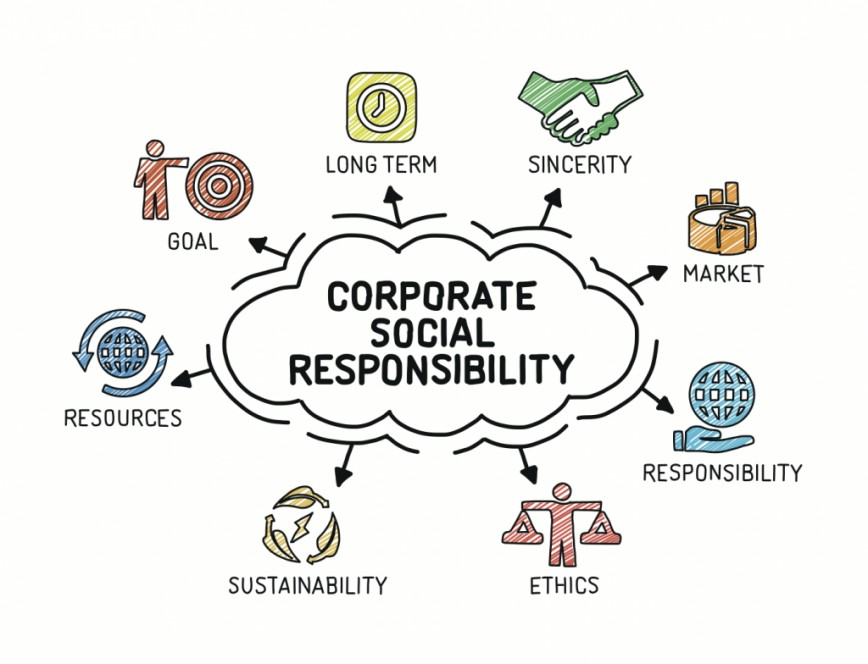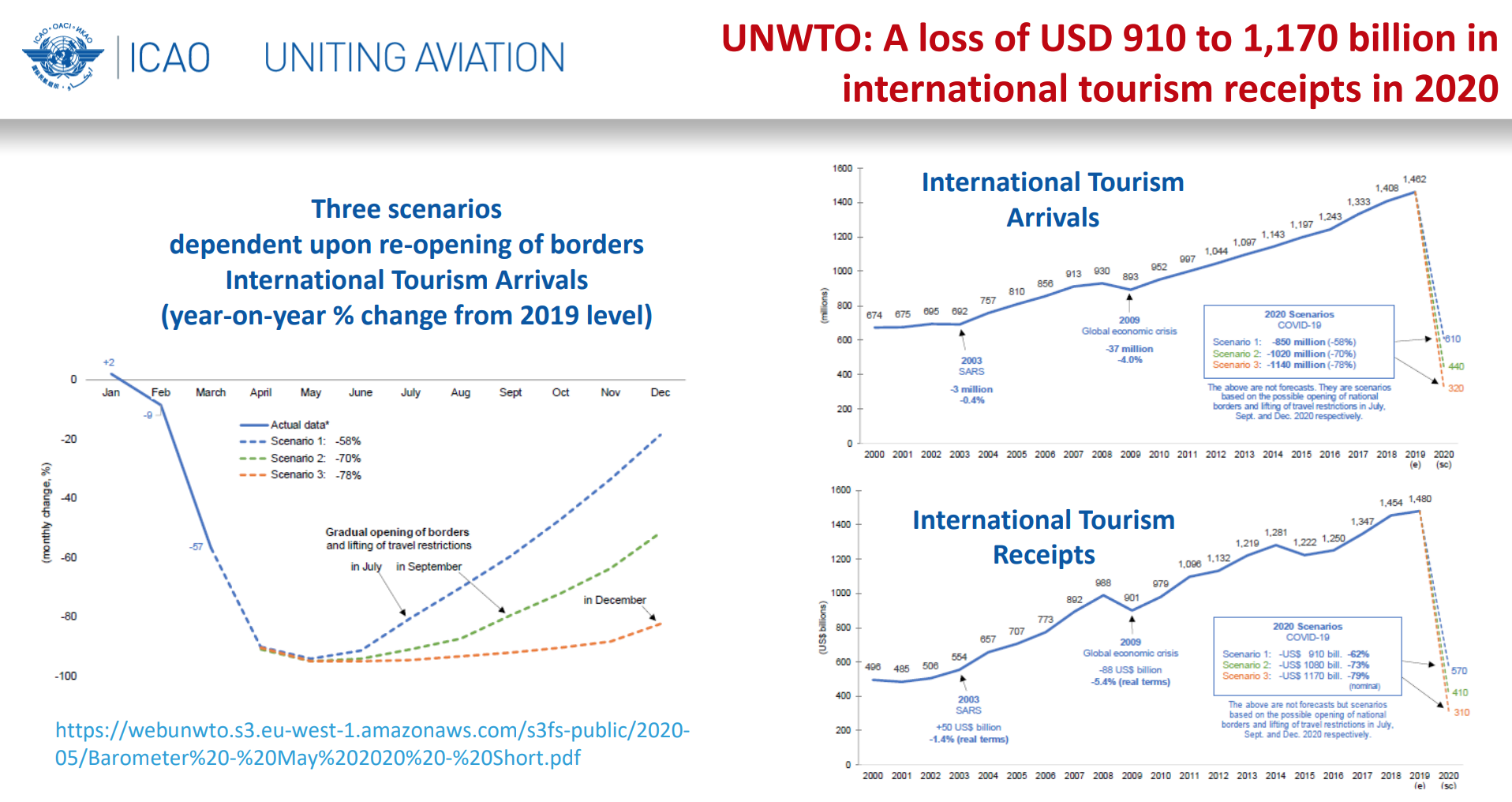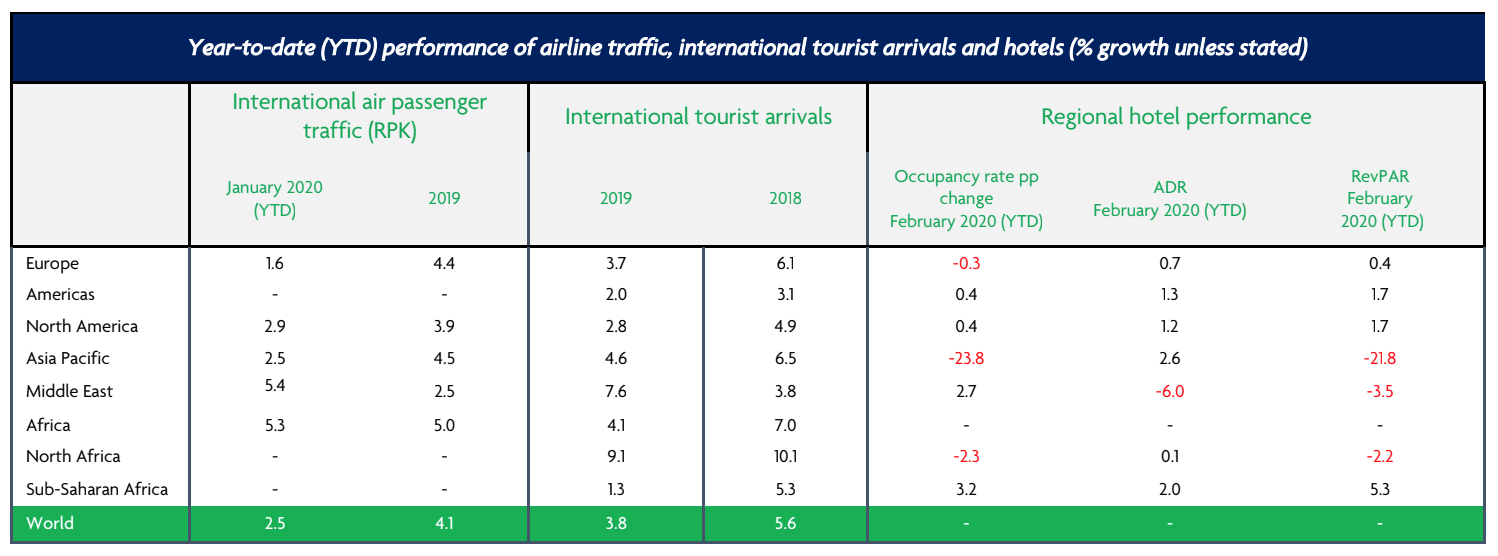As around USD 7 billion in damage was estimated, COVID-19 could drag Vietnamese tourism back to where it was 5 to 7 years ago. Regardless of the lifted mobility restriction, the hospitality industry is facing tremendous challenges in this crisis. To quickly recover in the ‘new normal’ era, businesses of the travel-tourism sector extremely need to maintain interactions with the media instead of accepting a silent recovery.
Tourism and hospitality are the first industries to be hit hard and the most affected ones in the economy at the outbreak of COVID-19. According to the General Statistics Office of Vietnam, the number of visitors to Vietnam in April decreases by 94,2% compared to the previous month (equivalent to 26,200 visits) and reduces by 98,2% compared to the same period last year, including the number of tourists from Asia shrinking by 97,8%, Europe by 99,5% and America by 99,8%. Over the first four months of the year, there have been only 3,7 million foreign travelers to Vietnam, diminishing by 37,8% compared to the same period in 2019.
Source: UNWTO World Tourism Barometer – Special Focus on the Impact of COVID‐19 (May 2020)
The main driver of this situation was primarily the government’s decision to suspend entry into Vietnam to all foreign nationals to stanch the spread of the coronavirus.
Hoteliers are therefore forced into an extremely tough situation. In a report by Vietnamtourism, Hanoi’s tourism turnover during the first four months of the year has gone down by 53,2% compared to the same period last year. Hotels’ occupancy level was estimated to reach 12,8% in April, reducing by 10,6% compared to March and 61,8% compared to the same period of the previous year.
Many investors in this sector who have commonly used strong financial leverages and been largely influenced by the number of foreign visitors resort to selling their properties at a discounted price, which is 20-30% lower than their own true value, due to payment pressures of both debt and interest rate to the banks. It is very unlikely that they can maintain their current business model due to the extremely high cost of running a hotel regardless of the ‘reopening’ policy issued on April 23, 2020.
Therefore, selling and transferring real estate or switching of usage have become a popular trend of many hotel chains in Vietnam responding to the pandemic. It is inevitable to have such a tendency as the majority of accommodation businesses in Vietnam serves the low segment (3 stars and below), which is mostly family-run businesses that are flexible in making decisions yet prone to fall in financial traps in the time of crisis.
Besides, according to Soundview, there are 151 hotels in Hanoi that still remain closed despite the government’s decision to ease social distancing. Revenues of such entities located inside the city reduced by 51% while which of those at the city center decreased by 49%. In HCMC, hotel managers had to cut their staff by 50% and rotate the rest on furlough just to get by.
Some insiders have made up their minds to decide to close their businesses although the Directive No. 16 is no longer effective. According to Mr. Son Le, CEO of the Liberty Central Nha Trang Hotel, having received the announcement of ending social distancing guidelines, customers do not feel at ease and ready for traveling, especially when the economy is extremely unstable. He believes that this is the reason why many places are closed temporarily to save up the operational costs as well as to minimize other fees.
Source: Monthly Economic Impact Update (WTTC, March 2020)
Facing a tremendous number of puzzles, tourism and hospitality leaders are struggling and trying to untangle their problems one step at a time. One of the top priorities that these enterprises should focus on at this point is to increasingly disseminate information about their own businesses on various media channels, including news outlets.
Via press releases, business leaders can inform their workers about the current situation in a transparent and clear way, which helps their staff at all levels better understand the overall situation of their companies. And directors can then explain about operational changes (e.g., layoffs, furlough rotation, etc.) or announce new policies that will soon be applied.
By ‘speaking up’ at the right time, tourist accommodation establishments can negotiate and propose new recommendations during ‘new normal’ as well as suggest win-win solutions to partners, including temporary exemption of property tax payment and agreement to comply with all of the terms and conditions during a certain period of time.
At the same time, press releases also serve as a tool to inform the public about a promotion, new services packages in the time of post COVID-19 and other special offers to stimulate demand.
During the ‘new normal’ period, hoteliers and landlords should also actively express their concerns to the relevant authorities, seeking support in solving problems. In fact, last month, the Ministry of Finance consulted with the Government about the 50% reduction in screening fee of issuing, replacing and re-issuing business licenses for foreign and local travel agencies compared to the original price indicated in the Circular No. 33/2018/TT-BTC.
Making use of press releases in a targeted and purposeful way, travel agents and hotels can prepare themselves well for a quick recovery in a short-term and a breakthrough in a long run.
TIPS FROM US
At CREATIO, we have consolidated a number of lessons learned for enterprises dealing with crisis communication. To avoid being slammed as insensitive by staff, here are 6 simple yet extremely practical moves that business leaders could spearhead right now without any additional fee:
TIP 1. Establish new standard operating procedure (SOP) for a ‘new normal’ era
Travelers have changed their top priorities in the post-pandemic period. With the fear of contagiousness, information on the level of safety and available on-site medical capacity and health services are among the key factors that determine the tourists’ destination.
To offer world-class cleanliness, improved hygiene standards and ensure guest safety, hotels are developing protocols based on learnings from offering free rooms to frontline healthcare workers during the COVID-19 crisis.
There will be new protocols for check-in involving digital technology; hand sanitizer stations at frequent points including where luggage is stored; contactless payment instead of cash; using stairs more often than lifts where the 2-meter rule can be harder to maintain, and fitness equipment being moved for greater separation among other examples.
Cruise operators will take further measures to ensure ships are free of COVID-19 including staff wearing gloves at all times which are then frequently changed; and more frequent room cleaning.
Travelers at airports will find themselves tested before they fly and upon arrival at their destination airport. They can expect to see social distancing measures at the airport and during boarding, as well as wearing masks while onboard.
Aircraft will also be subject to intensive cleansing regimes. These measures will be combined with contact-tracing, via mobile app, which will allow flights to leave airports COVID-19-free.
The protocols, which have been developed using experience from China’s initial recovery and from new successful standards used by retailers, will be fully announced next week and shared with governments globally, so there is a coordinated approach to traveling within the COVID-19 world.
TIP 2. Create a vacation alternative: The Staycation
A staycation (a portmanteau of "stay" and "vacation"), or holistay (a portmanteau of "holiday" and "stay"), is a period in which an individual or family stays home and participates in leisure activities within driving distance of their home and does not require overnight accommodations. The ‘staycation’ is a new concept that emerges during the outbreak of the coronavirus. This term implies a smart combination of complying with mobility guidelines, including avoiding crowds and traveling too far and enjoying the holidays to the fullest.
The trend was set as a consequence of three existing drivers in the present tourism industry: paralysed aviation sector, fear of disease and financial strain of travelers. Short vacations close to home are what customers need to satisfy their “itchy feet” after social distancing, which helps ensure health safety, economical budget, risk minimisation and flexibility in unexpected situations.
This implies that local travellers will be the first to recover after the pandemic. Regarding the proportions, local tourists constitute around 82,5% of the total visitors in the year of 2019. As a result, the tendency to travel near will be an advantage to the recovery path of Vietnamese tourism.
When most people are still feeling insecure about travelling far or to crowded places, a weekend getaway to a farm in the countryside or a high-end property that offers private pools and jacuzzis would make a brilliant trip for families with kids while renting a rooftop apartment would bring an unforgettable experience to newly married couples. Homestays and villa houses for rent within a 60-km driving distance will soon become a trend in the post-COVID-19 period.
If you have apartments for rent in the city, it’s time to re-package your products, transforming long-stay services into ‘staycations’ full of attractive experience. Meanwhile, if you have a small piece of forest or paddy field or a plot of garden, congratulations! You have successfully created a personalised service on your own. Indeed, having some moments for yourself at this critical time will definitely help strengthen your mind after such a crisis.
_1590136184.png)
Apart from mid-range hotels and homestays, large hotel chains like Marriott are also catching up with the “staycation” trend. Big hotels in this group, including Sheraton (Hanoi & Saigon), JW Marriott, Renaissance Riverside Saigon, Le Meridien Saigon, are currently offering new services to families that are looking for a high-end and luxury stay in the city center with special deals.
Luxstay has acted fast and innovatively let out its comfortable and well-furnished offices during a nationwide working-from-home period. While not everyone is having a private and comfortable place to work from home, Luxstay is quick to smartly offer a solution to this problem.
TIP 3. Promote tourism that goes hand in hand with national images
Well-known for its abundance in beautiful natural sceneries, its reasonable travelling costs, and recently, its successful response to the pandemic, Vietnam was ranked among top travel destinations after COVID-19 on Travel + Leisure, a popular travel magazine based in the US.
For this reason, accommodation and hospitality services should take advantage of such positive images of our country to promote your current services and products.
TIP 4. Take “advantage” of COVID-19 to “activate” policy recommendations
A big contributor to the national economy, tourism and hospitality industries need tremendous support for their growth, especially in the time of such crisis.
The Decision No. 08-NQ/TW, concerning an amendment in electricity bills for tourist accommodation establishments at the same level as the production costs, was issued by the Political Bureau on January 16, 2017. It has been more than three years and this policy has not been applied.
Now more than ever, businesses should be proactive in interacting and exchanging information with authorities to benefit from past policies.
The World Travel & Tourism Council (WTTC) proposes three vital measures to be taken with urgency by Governments, notably:
- Grant financial help to protect the incomes of millions of workers in the sector facing severe economic difficulties.
- Extend vital, unlimited interest-free loans to global Travel & Tourism companies, as well as the millions of SMEs as a stimulus to prevent collapse.
- Waive all government taxes, dues and financial demands on the Travel & Tourism sector with immediate effect at least for the next 12 months.
In response to the recommendations by WTTC in March, 2020, as of May 11, 2020, there have been 23 countries implementing strong policies to foster their own tourism development.
TIP 5. Go the extra mile: Corporate social responsibility
Tourism sector can also give a helping hand for social causes, including offering Food & Beverage services to medical staff at the frontline of the fight against COVID-19. Airbnb has recently launched a free provision of accommodations for medical staff around the world. Meanwhile in Vietnam, a campaign by Vietravel, called Happy mask, has donated 15,000 masks to medical staff and created various meaningful activities during the social distancing period.

Despite the dire situation of the Travel & Tourism sector, WTTC member organizations are going the extra mile to help their communities to overcome and combat COVID-19 from offering free accommodation to more than a million healthcare workers (Hilton with AMEX), and making available their ships to act as floating hospitals (Carnival) to offering free flights to medical personnel or to transport medical supplies (United and Iberia and donating millions of surgical masks across the work (Trip.com).
TIP 6. Go digital
In the short term, it’s inevitable that the tourism sector will not be able to grow back to its peak due to the weakened economy and, therefore, reduced individual income, which, combined with psychological responses to the crisis, makes one focus more on saving rather than spending. The revenue from inbound tourism is still limited as it is impossible to welcome groups of foreign tourists at this point. Therefore, a pragmatic solution for such problems and for maintaining the strong connection between brands and their loyal customers, not to mention generating income, is to digitalise traveling experience.

Travel agents can organise virtual visits by live-streaming a real tour with a real guide or uploading this video recording on their websites. This can help ensure brand visibility and maintain customer relationships as well as generating new leads. Two potential revenue models are in-stream ad or paid membership/subscription to videos.
Tourism in China, the original coronavirus epicenter, is interestingly recovering step by step. The nation of more than a billion people has managed to attract more than a million virtual tourists to visit the Potala Palace in Lhasa, a popular destination situated in southwest China’s Tibet Autonomous Region, via Taobao Live (an Alibaba’s live streaming unit). Apart from Portala, many other tourist attractions such as the Mogao Grottoes, the Chengdu Panda Base, the Great Wall, and the Palace Museum in Beijing are really popular via streaming. An interesting thing about such unique tours is that you can visit secret spots that are supposed to be restricted to foreign visitors. Although these tours are free, travel agencies can earn money through promoting online shopping of souvenirs and craft gifts to the virtual crowd.
Digital shows are what Bolshoi, a Moscow-based theatre in Russia, has chosen to carry on with. This ballet and opera house has announced that it would broadcast six of its best classic performances on its YouTube channel beginning March 27 with the Swan Lake ballet. "We've never faced this type of situation before and since we had to close the theater, we didn't want to lose our connection with our audience," said Vladimir Urin, general director of the Bolshoi Theatre.
Following the trend, Formula One also decided to broadcast its motor race online in parallel with the necessity of social distancing. By canceling the race, the organisers and the host country would have wasted a lot of preparation costs. Therefore, this year’s F1 will still take place in Bahrain without spectators, serving 500 million fans worldwide. The race would still generate revenues from TV streaming services.
RHS Chelsea Flower Show in the UK will be held virtually for the first time instead of its physical form as in other years. Every year, this 160-year-old festival welcomes 160,000 visitors on average, including members of the royal family. Due to the coronavirus pandemic, RHS Chelsea Flower Show, newly renamed as Virtual Chelsea, presents its details exclusively on RHS’s website and will air on BBC One at 3.45pm (BST) and on BBC Two at 8pm (BST), starting from May 18 to 23. This six-day program will be hosted by six different figures (one each day), including popular presenters, celebrated florists, cut flower experts and designers. The winners of the Chelsea Plant of the Decade and RHS Garden Product of the Year as chosen by the public will also be announced on the final day. Audiences can keep up with the RHS on social media on its Instagram and Twitter.
ABOUT CREATIO
Established in 2011, CREATIO has proven its position and expertise in the industry of creative communications solutions consultancy. With a broad range of services from event management, branding design and production, to content marketing and PR distribution, CREATIO has the privilege to serve more than 120 clients worldwide, from a singular design concept to year-long integrated communications campaigns.
Case study 1: Tobu Railway
With the aim to promote Tobu Railway, an extended railway connecting Tokyo and various tourist attractions located along this line, CREATIO helped develop three campaigns, including winter- and summer-themed campaigns and one specifically on the sakura-flavored sweets, a local specialty that represents the land of cherry blossoms. In this way, CREATIO has discovered many unique features of Japan and triggered a sense of curiosity to explore a new destination with all year-round inspirations and ideas for travelling.
Case study 2: Local gaming
In many years, casinos had been specifically designed for foreign tourists. Vietnamese people that fancy attending this kind of gambling would have to fly over neighboring countries or game inside the country in an illegal way. When a pilot proposal of making this legal to Vietnamese people was issued by the Government, CREATIO was honored to contribute its voice representing businesses in the topic. A lot of communication efforts have been done rigorously and in 2015, a legal framework for local casino activities was completed to consult with the Government about allowing Vietnamese citizens to gamble in casinos for the first time. In the beginning of 2017, the Decree No. 03/2017/ND-CP on casino business was issued, stemming from an opinion stating that Vietnamese people spend up to US$800 million for gaming abroad every year. Therefore, allowing its citizens to gamble in local casinos not only helps Vietnam keep foreign currencies but also increases the national budget via taxes paid by casino businesses and other fees of gamers.



